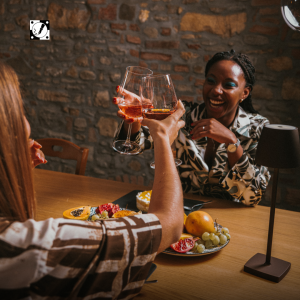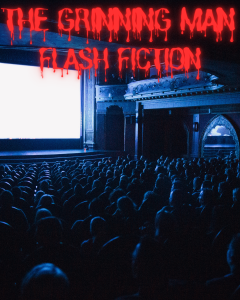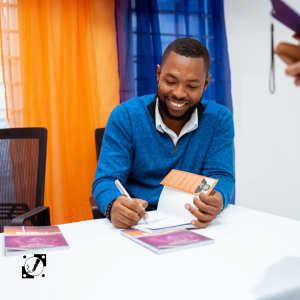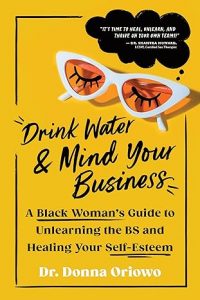Storytelling Saturday: Hate, Hope, and Hymns
6 min read
By Auri Jones
JUNE 1, 1820
In the late 1700s to the early 1800s “Cotton was King” The deep south’s slave cotton production exploded the United States economy and led to the “Second Middle Passage,” enslaved peoples were relocated from the upper South to the lower South of the United States to accommodate increasing demand. Cotton became the first mass consumer commodity.
The sound of harmonious voices filling the air reached Elijah’s ears as the hot sun beat down upon him with vicious malice. The heat of Mississippi was not friendly toward anyone. Sweat poured from his body as if there were a never-ending source, and no matter how much water he drank, there never seemed enough to quench his thirst.
The skin on his fingers had hardened into beautiful callouses. Picking cotton did that to a slave’s fingers. Ole’ Miss Gemma had hands like a rock, and he felt it, too when he would act up, and she would pop him on the head before threatening to tell his father.
Swing low, sweet chariot. Coming for the carry me home.
The low moan of the melody sounded through the fields. He found himself humming along just because.
“I don’t see why we sing these songs,” he told his father one night as they lay in the little shack trying to get some sleep.
“You know why we sing them, ‘Lijah,” his father replied. “We sing ‘em cause we got to hope that one day, we gonna be free. We got to hope that we gonna be delivered. Gawd knows. Gawd knows.”
It was the same answer. They were the same old songs.
Steal away, steal away, steal away to Jesus! Steal away, steal away home, I hain’t got long to stay here.
One day, Elijah was working in the field listening to the singing when he heard something behind him. He quickly turned and stood up straight. Massa’s daughter was staring at him quizzically. He had seen her from a distance before, but never this close up. She was older and looked very beautiful, but cold. He glanced around nervously wondering if he should run, say something, or just stand there.
“Why don’t you sing like the other slaves?”
“M-M-Me?”
“Yes, you. You don’t sing with them. You barely even hum.”
“I guess, I–I don’t know I…” He wasn’t sure what to say, but she waited. He shuddered. “I guess I just don’t believe in the songs.”
She cocked her head to the side. “What do the songs mean?”
He didn’t want to say. Was this a trap of some kind?
She crossed her arms. “I’m waiting, boy.”
“They’re songs about hope,” he said quickly; not wanting to disappoint her. “Hope that–that one day–one day, we will be free.”
She narrowed her eyes at him for a moment before clearing her throat. “Well, boy, I would think that if I were you, I’d want to have as much hope as I could have.”
“Hope don’t change things, ma’am.”
“Miss Charlotte,” she corrected.
He nodded.“Miss Charlotte.”
JUNE 1, 2020
George Perry Floyd Jr. (October 14, 1973 – May 25, 2020) was an African American man killed during an arrest after a store clerk alleged he had passed a counterfeit $20 bill in Minneapolis. Derek Chauvin, one of four police officers who arrived on the scene, knelt on Floyd’s neck for a period initially reported to be 8 minutes and 46 seconds.
Jamal stood watching the television in the commons. The visuals on the screen made him sick. Another black man shot by cops, riots in the streets, and the media hyping up what was already plain and clear. Racism still existed. Racism was still king. Racism needed to go.
“It hurts, doesn’t it?” He turned to see a black girl shaking her head at the screen.
“Hurts?” Jamal said. “It makes me angry. Every day, I gotta hope I don’t end up like him. I’m tired of it. I’m tired of watching this go on. I hate them for what they are doing.”
“I have a group of friends that are meeting this evening. We’re going to have a prayer meeting?”
“Prayer?” Jamal snorted. “No, thank you. Prayer doesn’t change things. We gotta take action. They wanna take out one of us, then we have to do the same.”
The girl frowned a little and chewed on her lip. “Sounds like you know what you’re going to do then. Can I ask something? Could you come to the meeting tonight? If you don’t like it, then I’ll help you with whatever you have planned.”
Jamal narrowed his eyes. “I don’t even know you.”
“I’m Harmony,” she said, holding out her hand. He shook it. She gave him an address to meet her that night. When Jamal showed up at the church, he almost turned and went the other way. Harmony was serious about this being a prayer meeting. People were showing up and going inside though, and as they did, Jamal heard singing from inside of the church.
He walked in as a song was being sung by the dozens of people gathered. He stood in the back of the group of black, white, Latino, Asian, and other ethnicities. He spotted Harmony in the middle of the group with a white guy, and they seemed to be leading it. When the song was over, Harmony spoke.
“Racism. White Privilege. Bigotry. Black face. The ‘N’ word. Karen.” The last word got a few chuckles. “All of this is about this culture of hate towards skin color and race. Another man died today; a black man.
He didn’t do anything wrong. He died because of hate. If you’re black in America today, you’re angry. You’re afraid. You want to retaliate. You want more than justice, you want restitution.”
And if you are white in America,” the guy next to her said. “You feel guilty. You feel like you have to do something to justify your skin color. Maybe—maybe, you feel like you aren’t racist; so, it’s not your problem. Maybe you grew up being taught a certain way.”
“The song that we just sang was said to be a favorite of Dr. Martin Luther King. ‘Precious Lord, take my hand. Lead me on, let me stand. I’m tired. I’m weak. I’m worn. Through the storm. Through the night. Lead me on through the light. Take my hand, precious Lord. And lead me home’. It’s a song born from the midst of loss and heartache, but Dr. King saw what the songwriter saw. We can respond in anger and hate or we can respond with hope. King said, ‘We must accept finite disappointment, but never lose infinite hope’. Let’s not only bring about racial justice but replace hate with hope.”
Jamal quickly found himself in the middle of several small groups forming. People were talking. They were hugging. They were crying together. This wasn’t what he was expecting.
“Hi, I’m Sam.” A white guy came up to him.
“Jamal.” The guy looks incredibly uncomfortable. As Jamal stared at him waiting to hear what the guy had to say next, he realized that he hated this guy. Yeah, he wanted racial justice, but at that moment, he hated white people for what had been done to the man earlier that day and countless others. He looked down. The prayer thing wasn’t about praying against racism as much as it was about praying against the hate and pride and anger that would prevent racism from being destroyed.
“Sam,” Jamal said. “I’m angry.”
Sam nodded and took a deep breath. “I’m here to listen and stand with you.”
Want to see your short story featured in our pages or on our website? Click HERE to read our submission guidelines!








